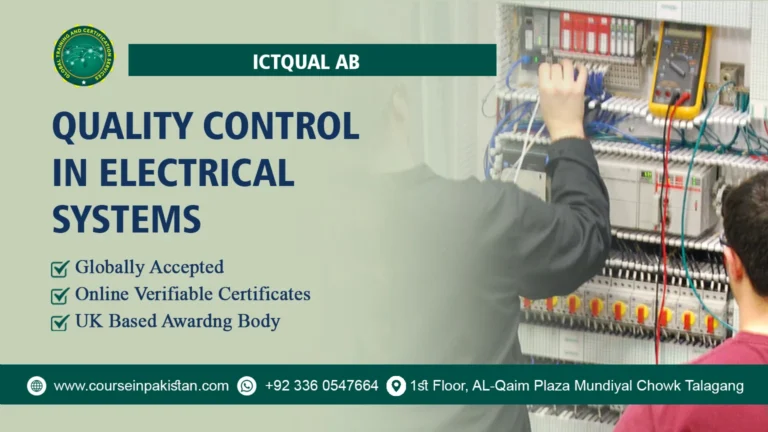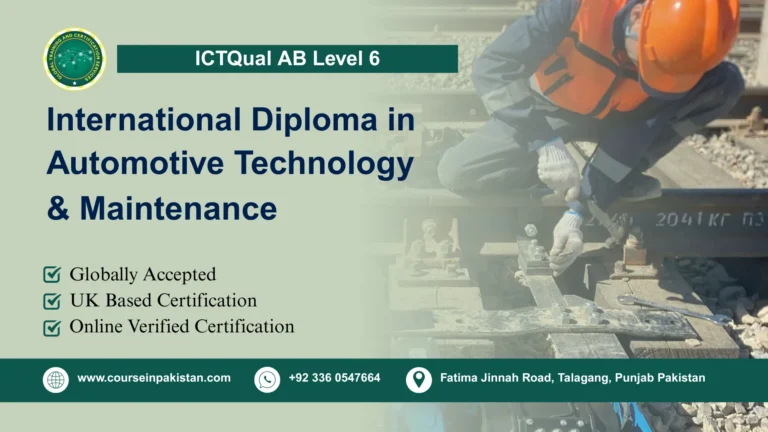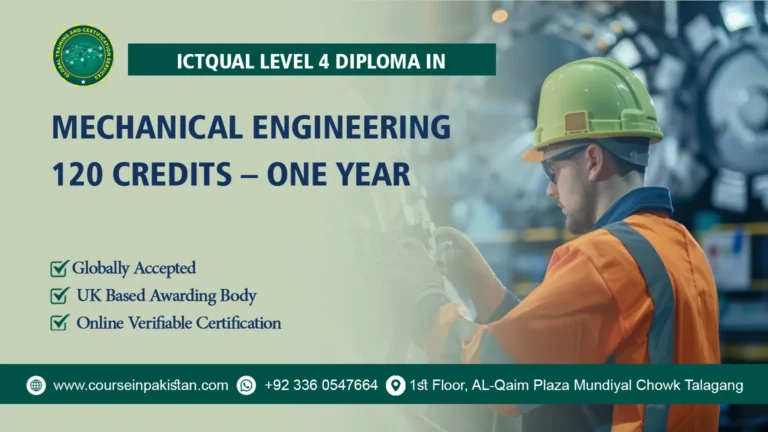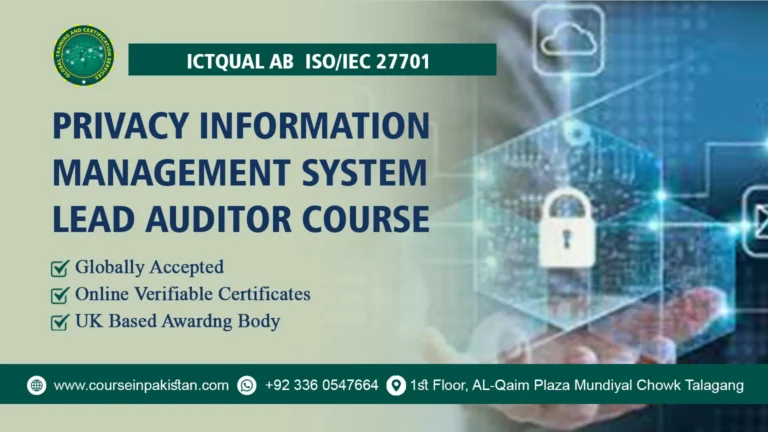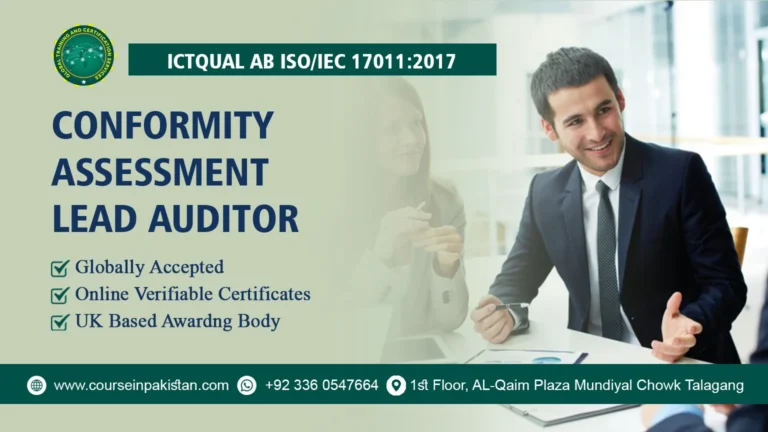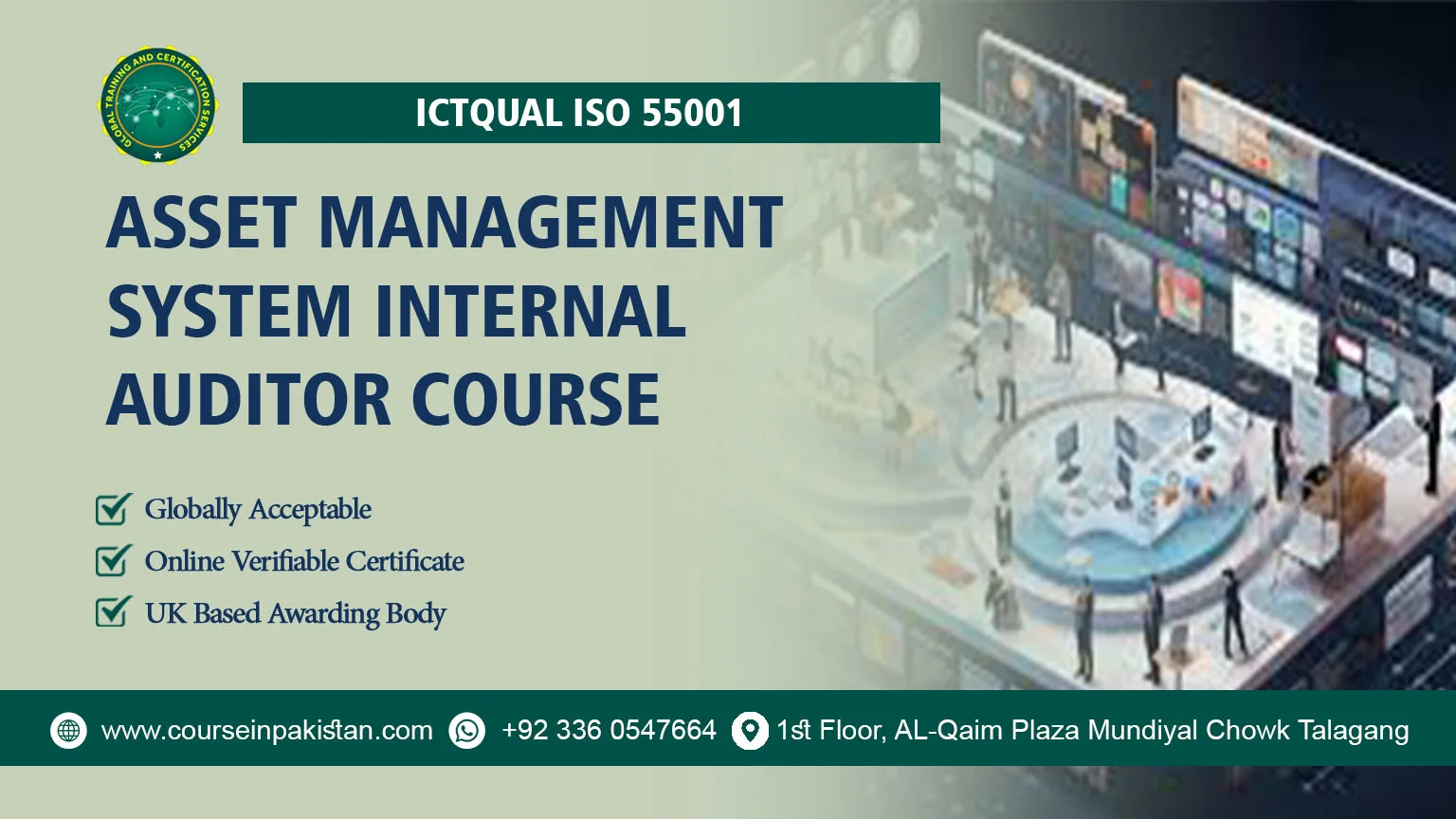
ICTQual ISO 55001 Asset Management System Internal Auditor Course
Asset management is critical for organizations to maximize value from their assets while maintaining operational efficiency and compliance with regulatory requirements. The ISO 55001 standard provides a systematic framework for managing assets throughout their lifecycle, ensuring organizations can achieve their strategic objectives effectively. For professionals looking to specialize in auditing and improving asset management systems, the ISO 55001 Asset Management System Internal Auditor Course offers essential training and certification.
Course Introduction
The ISO 55001 Internal Auditor Course is designed to equip participants with the knowledge and skills required to audit asset management systems based on ISO 55001 standards. This comprehensive training program focuses on understanding the principles, requirements, and best practices essential for enhancing asset management capabilities and ensuring sustainable asset performance.
Course Overview
Throughout the course, participants delve into the fundamentals of ISO 55001, audit principles, techniques, and methodologies specific to asset management. Practical exercises and case studies provide hands-on experience in planning, conducting, reporting, and following up on asset management audits. The course emphasizes the importance of aligning asset management practices with organizational goals to optimize asset performance and minimize risks.
Course Benefits
- Optimized Asset Performance: Learn to audit and improve asset management processes to maximize asset value and reliability.
- Enhanced Operational Efficiency: Identify opportunities for streamlining asset management workflows and reducing operational costs.
- Compliance Assurance: Ensure adherence to ISO 55001 standards and regulatory requirements.
- Career Advancement: Earn a globally recognized qualification that enhances career prospects in asset management and auditing roles.
Course Study Units
The course typically covers essential topics such as:
- Introduction to ISO 55001 and Asset Management Systems
- Understanding the Requirements of ISO 55001
- Internal Auditing Principles and Practices
- Audit Techniques and Tools for ISO 55001
- Risk Management in Asset Management Systems
- Performance Measurement and Evaluation
- Change Management and Continual Improvement
- Legal and Regulatory Compliance
Learning Outcomes
1. Introduction to ISO 55001 and Asset Management Systems
Learning Outcomes:
- Understand the purpose and scope of ISO 55001 in guiding asset management practices.
- Familiarize with the structure and key concepts of ISO 55001 standards.
- Recognize the benefits of implementing ISO 55001 for optimizing asset management processes and performance.
- Identify stakeholders involved in asset management and their roles in achieving organizational objectives.
2. Understanding the Requirements of ISO 55001
Learning Outcomes:
- Comprehend the specific requirements outlined in ISO 55001, including its clauses and guidelines.
- Interpret and apply ISO 55001 requirements within organizational asset management frameworks.
- Identify common challenges and gaps in meeting ISO 55001 requirements.
- Evaluate organizational compliance with ISO 55001 and recommend improvements as necessary.
3. Internal Auditing Principles and Practices
Learning Outcomes:
- Define the principles and objectives of internal auditing within the context of asset management.
- Understand ethical considerations and professional conduct expected from asset management auditors.
- Apply auditing principles to plan, conduct, report, and follow up on asset management audits.
- Develop interpersonal skills for effective communication and collaboration during asset management audits.
4. Audit Techniques and Tools for ISO 55001
Learning Outcomes:
- Utilize various audit techniques (e.g., document review, interviews, observations) to gather audit evidence effectively.
- Select appropriate audit tools (e.g., checklists, risk matrices) to ensure comprehensive evaluation of asset management practices.
- Apply risk-based auditing approaches to prioritize audit activities and focus on critical areas.
- Enhance proficiency in using audit software and technology to streamline audit processes and documentation.
5. Risk Management in Asset Management Systems
Learning Outcomes:
- Identify potential risks associated with asset management processes and activities.
- Evaluate risks based on their likelihood and impact on asset performance and organizational objectives.
- Develop risk mitigation strategies and controls to minimize risks and ensure asset reliability.
- Monitor and review risk management processes to drive continual improvement in risk mitigation efforts.
6. Performance Measurement and Evaluation
Learning Outcomes:
- Establish key performance indicators (KPIs) relevant to asset management objectives and goals.
- Measure and evaluate asset performance against established KPIs.
- Analyze performance data to identify trends, areas for improvement, and corrective actions.
- Implement strategies to optimize asset performance and achieve organizational objectives effectively.
7. Change Management and Continual Improvement
Learning Outcomes:
- Understand the principles and practices of change management within asset management frameworks.
- Implement effective change control processes to manage changes and updates to asset management practices.
- Foster a culture of continual improvement by identifying opportunities for innovation and enhancement.
- Monitor the effectiveness of implemented changes and adjustments to asset management processes.
8. Legal and Regulatory Compliance
Learning Outcomes:
- Stay informed about relevant legal and regulatory requirements applicable to asset management.
- Assess organizational compliance with applicable laws, regulations, and standards.
- Develop strategies and controls to ensure ongoing adherence to legal and regulatory requirements.
- Implement corrective actions and improvements to address non-compliance issues effectively.
By achieving these learning outcomes across the study units of the ISO 55001 Internal Auditor Course, participants will acquire the knowledge and skills necessary to effectively audit, enhance, and maintain asset management practices within their organizations.
Who is This Course For?
This course is ideal for:
- Asset Managers: Responsible for overseeing asset lifecycle management and ensuring compliance with ISO standards.
- Internal Auditors: Looking to specialize in auditing asset management practices and processes.
- Maintenance Engineers: Involved in optimizing asset maintenance strategies and reliability.
- Quality Assurance Professionals: Ensuring adherence to ISO standards within asset management frameworks.
Future Progression for This Course
Upon completing the ISO 55001 Internal Auditor Course, participants can pursue further professional development and career advancement opportunities, such as:
- Lead Auditor Certification: Advance to become a certified lead auditor for ISO 55001, capable of leading external audits for certification purposes.
- Advanced Asset Management Courses: Explore specialized courses in related fields such as Risk Management, Reliability Engineering, or Predictive Maintenance.
- Consultancy and Advisory Roles: Provide expert advice on asset management best practices and standards implementation to organizations globally.
- Organizational Leadership: Take on leadership roles in asset management, driving strategic initiatives for enhanced asset performance and organizational value.
ISO 55001 Asset Management System Internal Auditor Course equips professionals with the necessary skills and knowledge to audit, enhance, and maintain effective asset management practices within their organizations. By mastering ISO 55001 standards and auditing techniques, participants contribute to optimizing asset performance, ensuring compliance, and achieving strategic objectives through efficient asset management practices.

